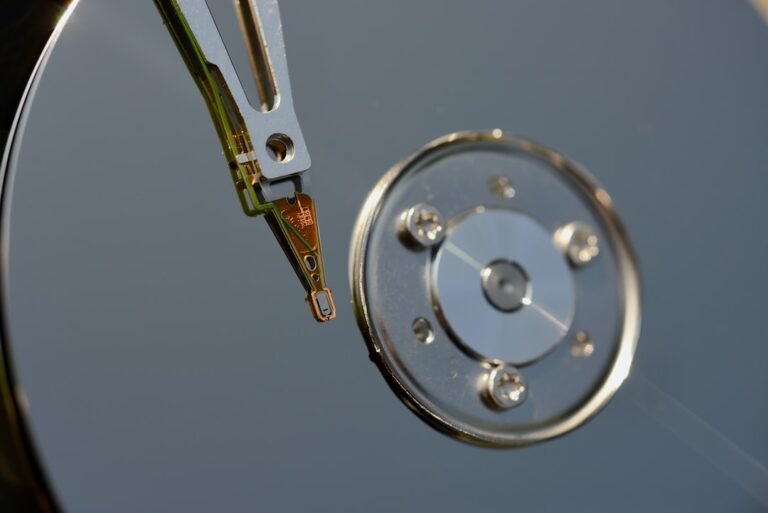Introduction
We live in a digital age where our homes are filled with interconnected devices, from smartphones and tablets to smart TVs and gaming consoles. With all these devices storing valuable data, it’s essential to have a reliable backup strategy in place to protect our information from loss or damage. In this article, we’ll explore various home network backup strategies for secure data protection. Whether you’re a novice or tech-savvy, we’ve got you covered with easy-to-understand tips and expert advice to ensure your data is safe and sound.
The Importance of Home Network Backup
Have you ever experienced the sinking feeling of losing important files due to a computer crash, accidental deletion, or even a malware attack? It’s not a pleasant experience, to say the least. That’s where home network backup comes into play. It’s like having an insurance policy for your data, providing peace of mind knowing that even if something happens to your devices, your files are safely backed up elsewhere.
Protecting Against Data Loss
Data loss can occur in various ways, such as hardware failure, natural disasters, theft, or even human error. By implementing a robust backup strategy, you can mitigate the risk of losing precious memories, critical documents, or important files.
Ensuring Data Security
Backup solutions not only protect your data from loss but also ensure its security. In a world full of data breaches and cyber threats, having a secure backup is essential. It ensures that your sensitive information remains inaccessible to unauthorized individuals.
Facilitating Data Recovery
Imagine your computer crashes, and you’re left with a blank screen. Without a backup, recovering your files can be a daunting task, if not impossible. With a reliable backup solution, you can easily restore your data and get back up and running in no time.
Different Home Network Backup Strategies
Now that we understand the importance of home network backup let’s explore some effective strategies to safeguard our data. These strategies can be tailored to your specific needs and preferences, ensuring that your backup solution works seamlessly with your home network setup.
1. External Hard Drives
External hard drives are a popular backup solution due to their affordability and ease of use. They provide a physical medium for storing your data, allowing you to quickly transfer and access files when needed. Simply connect the external hard drive to your computer or network, and you’re ready to start backup operations.
2. Network Attached Storage (NAS)
A Network Attached Storage (NAS) device is like having your own mini server at home. It connects to your network and provides centralized storage for all your devices. NAS devices often come with RAID (Redundant Array of Independent Disks) capabilities, allowing for increased data redundancy and protection against drive failure. With a NAS, you can easily back up multiple devices, share files across your network, and even access your data remotely.
3. Cloud Storage
Cloud storage has revolutionized the way we back up and access our data. With cloud storage services like Google Drive, Dropbox, and OneDrive, you can securely store your files in remote servers accessible from anywhere with an internet connection. Cloud storage provides an off-site backup solution, ensuring that even if disaster strikes your home, your files remain safe and retrievable.
4. Hybrid Backup Solutions
For those seeking the best of both worlds, hybrid backup solutions combine the benefits of local backups with the convenience and security of cloud storage. These solutions typically involve a local backup device like an NAS or external hard drive, which automatically syncs its contents to a cloud storage provider. This hybrid approach offers the advantage of fast local backups and the added protection of off-site storage.
5. Online Backup Services
If you’re looking for a hassle-free backup solution, online backup services might be the answer. These services, such as Carbonite and Backblaze, specialize in securely backing up your data to the cloud without requiring any complex setup. Once installed, they work silently in the background, continuously uploading your files to the cloud, ensuring that your data is always protected.
Conclusion
In today’s digital age, our data is more valuable than ever. Protecting it with a reliable home network backup strategy is crucial. Whether you choose external hard drives, network-attached storage, cloud storage, hybrid solutions, or online backup services, the key is to have a plan in place. Take the time to assess your needs, consider factors like storage capacity, ease of use, and cost, and implement a backup strategy that fits your home network setup. By doing so, you can rest easy knowing that your data is secure, and you’re prepared for any unforeseen data loss scenario.
FAQ
| Question | Answer |
|---|---|
| How do I set up my home network for backups? | Setting up a home network for backups starts with ensuring reliable connectivity throughout your home. You can achieve this by investing in quality networking equipment, such as a wireless router. For a comprehensive guide on home network setup, check out our article on home network setup. Remember, a stable network connection is essential for smooth and uninterrupted backup operations. |
| How can I improve the security of my wireless router? | Wireless routers play a crucial role in your home network’s security. To enhance router security, you can follow best practices like changing the default admin credentials, enabling encryption protocols like WPA2, and regularly updating the router’s firmware. For a more in-depth guide on securing your wireless router, check out our article on wireless router security. |
| What should I do if I’m experiencing router issues? | Router issues can be frustrating, but often, they can be resolved with some troubleshooting. From slow internet speeds to connectivity problems, our article on router troubleshooting provides valuable insights and tips to get your network back up and running smoothly. |
| Is it possible to back up data from gaming consoles? | Yes, it is possible to back up data from gaming consoles. Many modern consoles offer built-in backup options, allowing you to save your game progress and settings. Additionally, some external hard drives are compatible with consoles, providing expanded storage capacity. Check your console’s user manual or the manufacturer’s website for more information on how to back up data from your specific gaming console. |
| Can I use my home network backup for smart home devices? | Absolutely! Smart home devices, like security cameras, smart thermostats, and voice assistants, often generate and store significant amounts of data. By including these devices in your home network backup, you ensure that their data is protected and recoverable in case of a failure or loss. Read our article on smart home integration to learn more about connecting and managing smart devices on your home network with data backup in mind. |
Further Reading
| Website | Description |
|---|---|
| www.backupreview.com | Backup Review provides in-depth reviews, news, and articles related to backup technologies, products, and services. |
| www.lifewire.com/home-data-backup-4166716 | Lifewire offers a comprehensive guide on home data backup, including tutorials, tips, and product recommendations. |
| www.techradar.com/news/best-cloud-backup-5-providers | TechRadar features a list of the best cloud backup service providers, offering insights and comparisons to help you choose the right one for you. |




